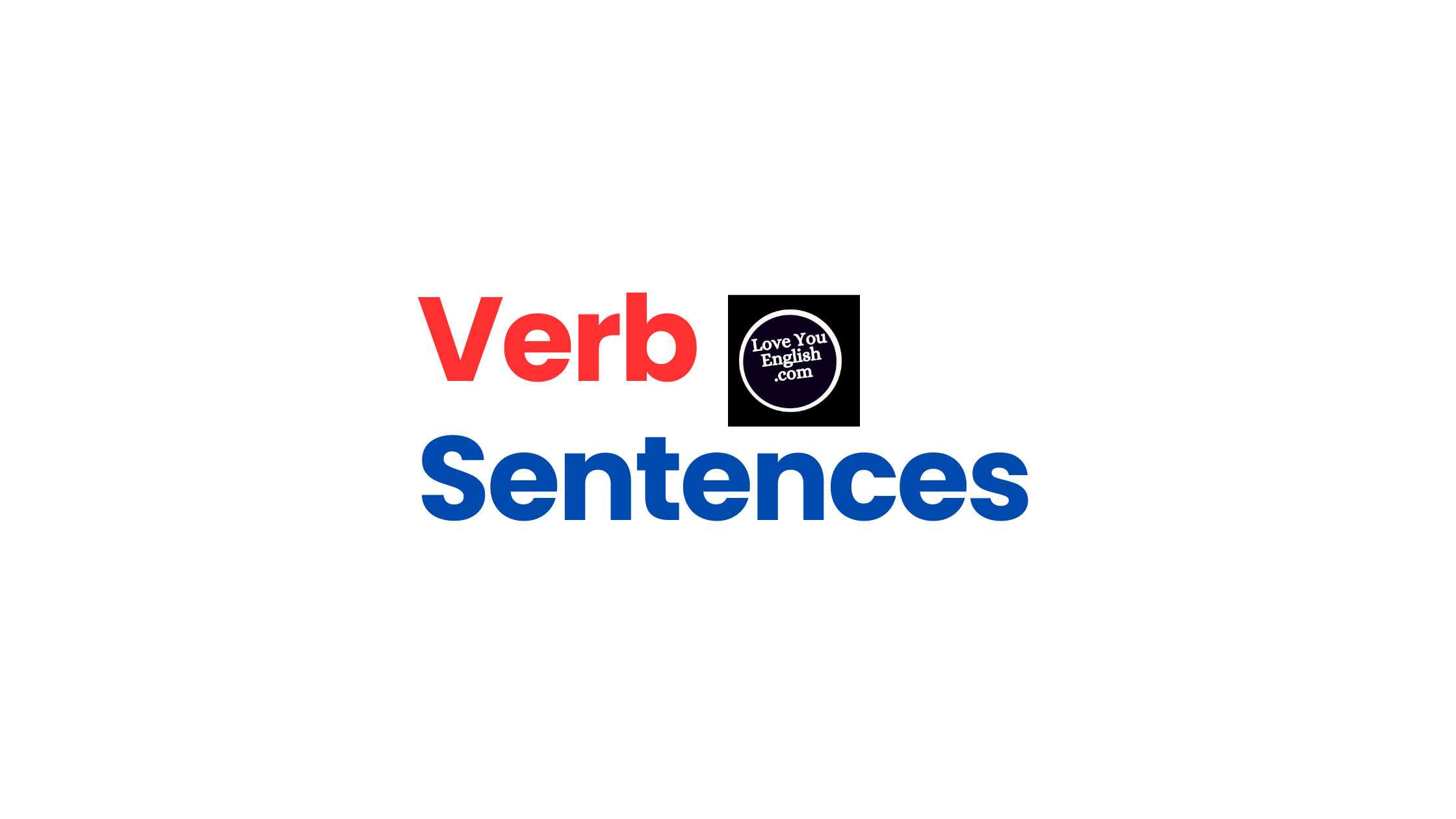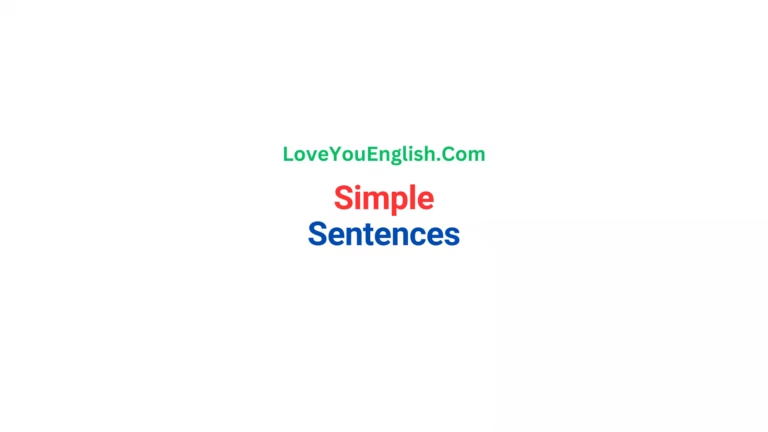Verbs are one of the most important parts of English grammar.
They help us talk about actions, activities, feelings, and states.
Without verbs, sentences are not complete. Learning verb sentences helps students improve their speaking, writing, and grammar skills.
This blog post, “200 Verb Sentences in English for Students,” is specially created for school students, beginners, and ESL learners.
In this post, you will find easy and useful English sentences using common verbs.
These sentences are perfect for daily practice, classroom learning, homework, and building a strong foundation in English grammar and communication.
Table of Contents
ToggleAction Verbs
Action verbs express physical or mental activities. They tell us what the subject of the sentence is doing.
- She runs every morning before breakfast.
- The cat jumped onto the table.
- He writes poetry in his spare time.
- They eat dinner at 7 PM.
- The children play in the park.
- I read a book every week.
- She sings beautifully.
- They dance at parties.
- He draws cartoons for the newspaper.
- We swim in the lake during summer.
- The dog barks at strangers.
- Birds fly south for winter.
- The chef cooks amazing meals.
- She paints landscapes.
- He builds model airplanes.
- The teacher explains the lesson.
- I study English every day.
- The baby cries when hungry.
- He drives to work.
- They climb mountains for fun.
Linking Verbs
Linking verbs connect the subject to additional information about the subject. They don’t show action.
- She is a doctor.
- The soup tastes delicious.
- He seems happy today.
- The flowers smell wonderful.
- I feel tired after work.
- The movie was interesting.
- She became a teacher last year.
- The milk turned sour.
- He appears confused about the directions.
- That sounds like a good idea.
- The sky looks cloudy today.
- The bread remains fresh for three days.
- She grew tired of waiting.
- The cake smells amazing.
- He stays calm under pressure.
- The weather proved unpredictable.
- She feels better after taking medicine.
- The situation seems hopeless.
- The house remained empty for years.
- This fabric feels soft.
Helping Verbs (Auxiliaries)
Helping verbs work with main verbs to form different tenses, voices, or moods.
- I am working on a project.
- She has finished her homework.
- They will arrive tomorrow.
- He can swim across the lake.
- We should leave soon.
- You must follow the rules.
- They might join us later.
- She would help if she could.
- I do believe you’re right.
- He did complete the assignment.
- We have been waiting for hours.
- They are singing in the choir.
- She could solve the problem.
- I shall return before dark.
- You may enter now.
- We were watching TV when the phone rang.
- He has been studying all night.
- They might have missed the train.
- She ought to practice more.
- I would have told you if I knew.
Regular Verbs (Simple Past & Past Participle)
Regular verbs form their past tense and past participle by adding -ed or -d.
- She walked to school yesterday.
- They talked about the movie.
- I cleaned my room last weekend.
- He fixed the broken chair.
- We watched a movie last night.
- She has worked here for five years.
- They have played tennis since childhood.
- I have lived in this city since 2010.
- He has learned many languages.
- We have visited Paris three times.
- She planted flowers in her garden.
- They painted the house blue.
- I closed all the windows before leaving.
- He has waited for an hour.
- We needed help with the project.
- She has wanted to be a doctor since childhood.
- They answered all the questions correctly.
- I showed them how to use the machine.
- He saved money for a new car.
- We tried our best to win the game.
Irregular Verbs
Irregular verbs change form in unpredictable ways for past tense and past participle.
- She spoke to the manager yesterday.
- They went to the beach last weekend.
- I saw a shooting star last night.
- He took the last train home.
- We came home late.
- She has written three books.
- They have made a lot of progress.
- I ate breakfast at 7 AM.
- He has drunk all the milk.
- We taught ourselves how to play guitar.
- She brought lunch for everyone.
- They flew to London last month.
- I chose the red dress for the party.
- He sold his old car.
- We slept for ten hours.
- She told me the truth.
- They won the championship.
- I knew the answer.
- He gave me a birthday present.
- We found the lost keys.
Present Tense
Present tense verbs show actions happening now or regularly.
- I walk to work every day.
- She drinks coffee in the morning.
- They live in a small apartment.
- He teaches math at the university.
- We meet every Tuesday for lunch.
- The sun rises in the east.
- She always helps her neighbors.
- They watch movies on weekends.
- I work from home on Fridays.
- He studies medicine at this university.
- We often travel during summer.
- She writes for a magazine.
- They play soccer in the park.
- I cook dinner for my family.
- He sends emails to clients daily.
- We speak English at work.
- She takes photos of birds.
- They grow vegetables in their garden.
- I read the newspaper every morning.
- He drives a blue car.
Past Tense
Past tense verbs show actions that happened before now.
- I visited my grandparents last month.
- She called me yesterday.
- They ate at that restaurant last week.
- He wrote a letter to his friend.
- We saw a movie on Saturday.
- The dog barked all night.
- She bought a new computer.
- They left early in the morning.
- I met my wife in college.
- He taught English in Japan for three years.
- We drove across the country.
- She found her missing keys under the sofa.
- They built their house in 2015.
- I spent my vacation in Italy.
- He broke his arm playing basketball.
- We heard a strange noise last night.
- She sold her old bicycle.
- They won the competition last year.
- I felt sick after eating seafood.
- He lost his wallet at the mall.
Future Tense
Future tense verbs show actions that will happen later.
- I will call you tomorrow.
- She is going to visit her parents next week.
- They will arrive at 3 PM.
- He will finish the project by Friday.
- We are going to move to a new house.
- The train will depart in ten minutes.
- She will graduate next spring.
- They are going to celebrate their anniversary.
- I will help you with your homework.
- He will send the document later today.
- We will attend the conference next month.
- She is going to cook dinner tonight.
- They will travel to Spain next summer.
- I am going to learn Japanese.
- He will start his new job on Monday.
- We will meet at the restaurant at 7 PM.
- She will submit her application tomorrow.
- They are going to perform at the concert.
- I will tell you the truth.
- He is going to fix the leaking roof.
Phrasal Verbs
Phrasal verbs combine a verb with a preposition or adverb to create a new meaning.
- Please turn off the lights when you leave.
- She looked up the word in the dictionary.
- They ran out of milk this morning.
- He gave up smoking last year.
- We put off the meeting until next week.
- The plane took off on time.
- She dropped by unexpectedly yesterday.
- They broke down on the highway.
- I came across an old photo album.
- He handed in his assignment late.
- We set up the equipment before the presentation.
- She picked up French very quickly.
- They carried out extensive research.
- I filled out the application form.
- He pointed out the mistake in my work.
- We looked after the neighbors’ cat while they were away.
- She checked in at the hotel.
- They called off the wedding.
- I figured out the solution to the problem.
- He made up a story about where he had been.
Modal Verbs
Modal verbs express necessity, possibility, permission, or ability.
- You should see a doctor about that cough.
- She can speak three languages fluently.
- They must arrive by 9 AM.
- He might join us for dinner.
- We could go to the beach if the weather is nice.
- I may be late for the meeting.
- She would help if she had time.
- They ought to practice more before the concert.
- He shall represent us at the conference.
- We needn’t worry about it now.
- You mustn’t touch that button.
- She couldn’t attend the meeting yesterday.
- They shouldn’t spend so much money.
- I can’t find my keys anywhere.
- He would have told you if he knew.
- We might have taken a wrong turn.
- She must have forgotten our appointment.
- They could have won if they tried harder.
- I should have studied more for the exam.
- He will have completed the task by tomorrow.
Conclusion
Understanding verbs is essential for mastering the English language.
By studying these examples, you’ll develop a better grasp of how different types of verbs function in sentences.
Keep practicing by creating your own sentences using these verbs in different contexts.
Remember, the more you use them, the more natural they’ll become in your everyday communication.






